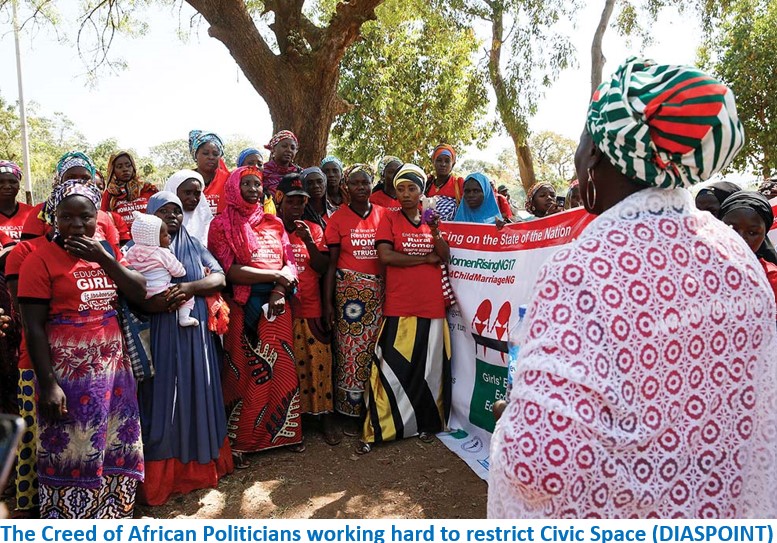Civil Society Space in Southern Africa Shrinking as Government Repression Rises
Post By Diaspoint | August 1, 2023

Freedom of expression is under threat as governments in Southern Africa have enacted laws restricting civil society organizations, says global rights advocacy organisation, CIVICUS, warning that human rights violations are on the increase globally.
“The state of civil society is unfortunately not improving; civil restrictions continue across the world,” said David Kobe, the advocacy Lead at CIVICUS.
“More than 2 billion people live in countries that are rated as closed, which is the worst rating any country can have – this means that 28 percent of the world’s population are not able to speak out when there is corruption or human rights violations restrictions or cannot write articles as journalists without facing appraisals,” Kobe told IPS in an interview, noting that the organization’s human rights tool is indicating growing suppression of civil space across the world.
The CIVICUS Monitor, a tool accessing the state of civic space in more than 190 countries, provides evidence of restrictions on human rights by governments. The CIVICUS Monitor rates the state of civil space ‘open, ‘repressed’, and ‘closed’ according to each country.
Kobe notes that human rights violations are increasing globally with more restrictions on civil society in Australia, the United Kingdom and the United States. The picture is not different in the Southern Africa region where restrictions on civil space have been continuing, and these have included censorship, violent response to protests and restrictive laws as seen in Angola, Mozambique and Zimbabwe
Closing Civil Society Space
Zimbabwe remains on the CIVICUS Monitor Watchlist as attacks on civic space continue ahead of the scheduled 2023 national elections.
Last November, Zimbabwe approved the Criminal Law (Codification and Reform) Amendment Bill, 2022, known as the Patriotic Act. The law seeks to create the offence of “wilfully damaging the sovereignty and national interest of Zimbabwe” and will essentially criminalise the lobbying of foreign governments to extend or implement sanctions against Zimbabwe or its officials.
Furthermore, the Zimbabwe government gazetted the Private Voluntary Organisations Amendment Bill in November 2021, amending the Private Voluntary Organisations Act, which governs non-profit organizations. The main aim of the Bill is to comply with the Financial Action Task Force (FATF) recommendations to strengthen the country’s legal framework to combat money laundering, financing terrorism and proliferation.
Read More from original source
